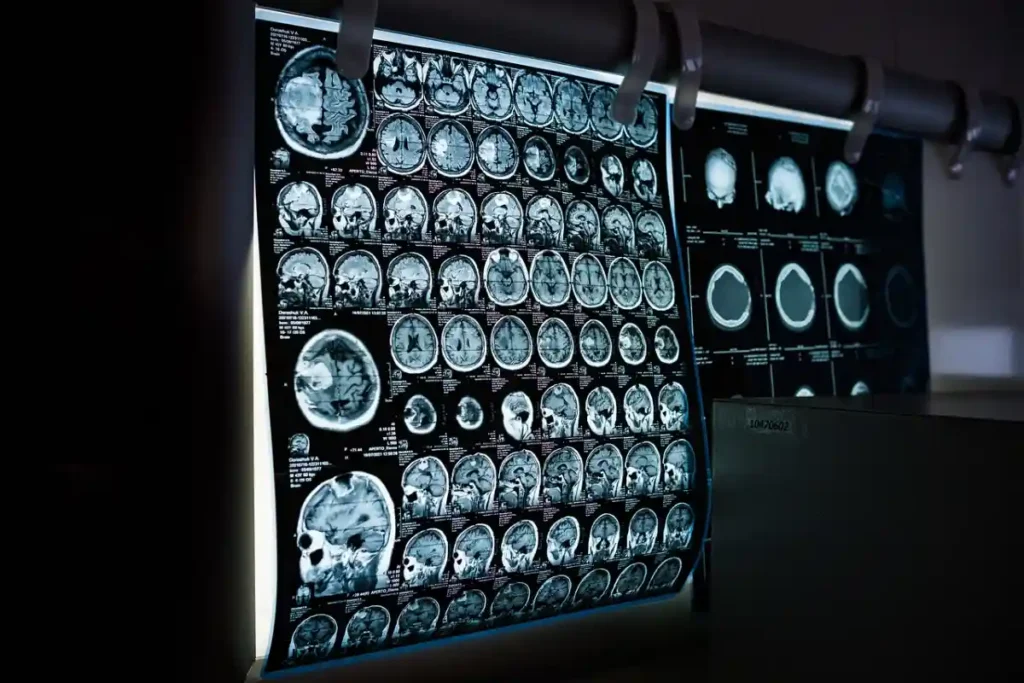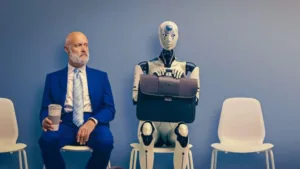How Artificial Intelligence (AI) is Transforming Your Life
In the ever-changing technological landscape, Artificial Intelligence (AI) stands out as a light of innovation, revolutionizing how you live, work, and communicate. The advent of AI has heralded a new era, pushing the bounds of what is possible and altering industries around the world. AI is more than just a collection of algorithms; it is a disruptive force that pervades the entire fabric of human existence. From optimizing boring chores to pushing the limits of creativity, AI has ushered in a revolution that defies conventional constraints.
In this, you will seek to understand the diverse impact of AI on both personal and professional endeavors. From optimizing workflows to redefining productivity, AI’s impact is far-reaching, reshaping how we navigate, invent, and connect in an increasingly digital world.
Understanding Artificial Intelligence
Artificial intelligence (AI) is a field of computer science that focuses on the development of intelligent machines capable of doing activities that would normally need human intelligence. These computers are intended to mimic human thought processes and learn from experience, allowing them to adapt and increase performance over time.
AI can be divided into two categories: narrow AI and general AI. Narrow AI refers to AI systems that are intended to perform specialized functions, such as facial recognition or voice assistants. General AI, on the other hand, refers to AI systems that can interpret, learn, and apply information in a variety of contexts.
Machine learning, natural language processing, and neural networks have all contributed to the evolution of AI. These technologies allow AI systems to process and analyze vast volumes of data, identify patterns, and make predictions or judgments based on that information. AI has extensive applications in a variety of industries, including healthcare, banking, and retail. Businesses and organizations can use AI to automate operations, increase productivity, and make better decisions.
Applications of Artificial Intelligence
AI has found applications across a wide range of industries. AI is transforming patient care in healthcare by allowing for early disease detection, personalized treatment regimens, and enhanced diagnosis. AI-powered systems can analyze medical pictures like X-rays and MRIs to detect abnormalities or predict the likelihood of specific illnesses. AI algorithms can also help with medication discovery and development by analyzing large volumes of data to uncover prospective therapeutic candidates.
AI is accelerating business efficiency and innovation. AI-powered chatbots and virtual assistants improve customer service by offering rapid responses and personalized recommendations. AI algorithms can analyze customer data to detect trends, preferences, and purchasing patterns, allowing firms to customize marketing campaigns and provide more personalized experiences. AI is also employed in supply chain management, fraud detection, and predictive analytics, among other applications.
Other industries that benefit from AI include banking, where AI algorithms can analyze market data and predict investment returns, and transportation, where AI-powered systems improve traffic management and enable self-driving vehicles. AI is also applied in education, agriculture, cybersecurity, and a variety of other fields, making it a truly transformational technology.
Artificial intelligence in Healthcare

AI has the potential to transform patient care by improving diagnoses, therapy, and overall healthcare delivery. AI-powered systems can analyze patient data, including as medical records, lab findings, and genetic information, to detect patterns and forecast illness progression or treatment outcomes. This can help healthcare practitioners make more accurate diagnosis and create personalized treatment programmed.
AI algorithms can also help with medical imaging by analyzing X-rays, CT scans, and mammograms to discover anomalies or early indicators of disease. AI-powered robots can conduct complex surgeries with greater accuracy and efficiency, lowering the risk of complications and increasing patient outcomes. AI is also employed in drug research, clinical trials, remote patient monitoring, and other applications.
With advances in AI, healthcare is approaching a new era of precision medicine, in which therapies are tailored to individual patients based on their unique traits and genetic composition. This has the potential to enhance patient outcomes, lower healthcare costs, and transform how healthcare is delivered.
Artificial Intelligence in Business
AI is revolutionizing the business landscape by increasing efficiency and innovation. AI-powered chatbots and virtual assistants are transforming customer service by offering quick responses, personalized recommendations, and 24-hour support. These AI systems can handle customer inquiries, make product recommendations, and even conduct transactions, freeing up human personnel to work on more difficult tasks.
AI systems can analyze massive volumes of client data to uncover patterns, preferences, and purchasing behaviors. This allows firms to customize their marketing campaigns, personalize consumer experiences, and increase customer happiness. AI may also help with supply chain management by adjusting inventory levels, forecasting demand, cybersecurity and recognizing possible bottlenecks or interruptions.
AI is also employed for fraud detection and prevention. AI algorithms can analyze enormous amounts of data, such as transaction records or user behavior patterns, to detect suspicious activity or anomalies. This enables businesses and financial institutions to detect and prevent fraud, preserving their assets and customers. Overall, AI is increasing efficiency, productivity, and creativity across industries, allowing firms to remain competitive in a quickly changing digital market.
The Future of Artificial Intelligence
Artificial intelligence’s future seems bright and full of possibilities. With improvements in AI technologies, we may expect even more automation, better decision-making, and increased productivity across a variety of industries. AI-powered systems will continue to evolve and improve their intelligence, allowing them to execute complicated jobs and learn from experience.
AI is predicted to have a substantial impact on driverless vehicles. AI systems can help self-driving cars drive safely, make quick judgments, and communicate with other vehicles or infrastructure. This has the potential to minimize accidents, enhance traffic flow, and transform transportation as we know it.
AI is also expected to play a critical role in tackling global issues like climate change and healthcare. AI-powered systems can analyze massive volumes of data to detect patterns and forecast outcomes, assisting scientists and researchers in developing answers to challenging issues. AI can help with climate modeling, medication research, disease surveillance, and a variety of other applications.
However, as AI’s capabilities grow, ethical questions and responsible AI use become increasingly important. AI systems must be transparent, fair, and accountable, as well as address issues about privacy, bias, and job displacement.
Conclusion
In short, artificial intelligence is revolutionizing several industries and changing the way people live and work. AI is driving efficiency, innovation, and better outcomes in industries as diverse as healthcare, business, and transportation. With continued breakthroughs in AI technology, you can anticipate a future in which intelligent machines play an even larger role in influencing our world. This is an investigation of how AI can change into a life-changing ally when it is allowed to run amok and leads you towards a day when the extraordinary becomes the new normal.













Add comment